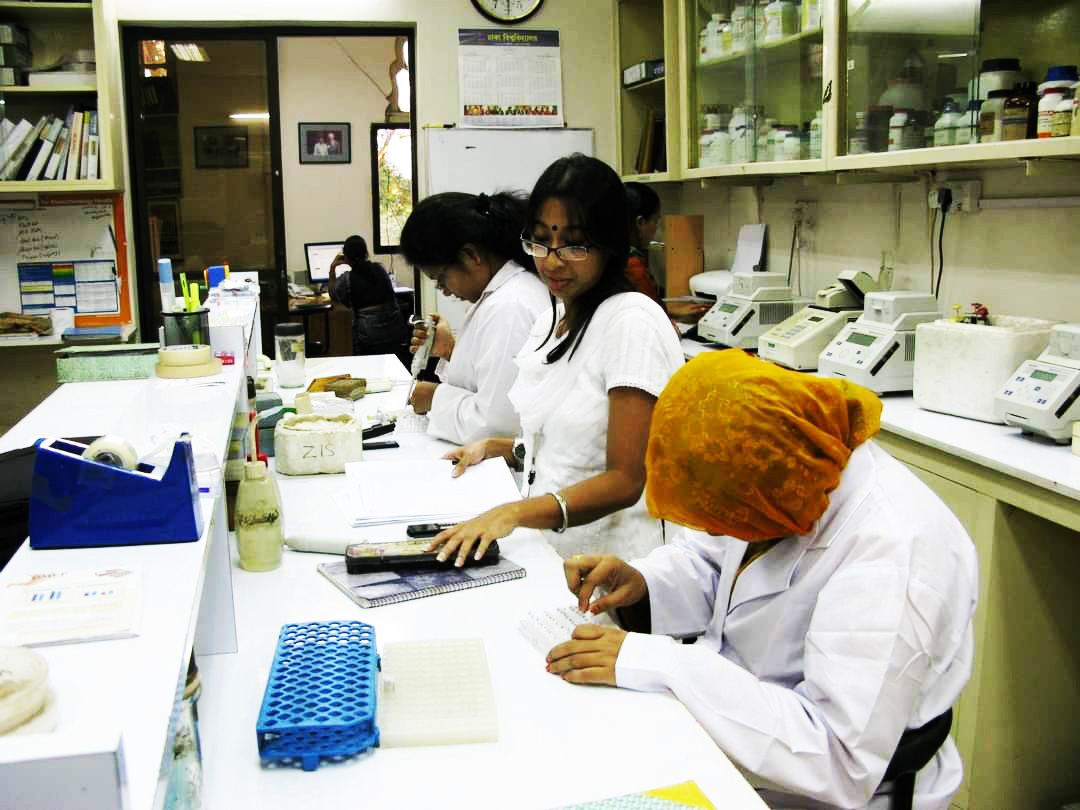 Welcome to our website for a glimpse of the kind of work we do at the Plant Biotechnology Lab, at the Department of Biochemistry and Molecular Biology, University of Dhaka. Our focus is on producing rice tolerant to saline stress, suitable for growth in the coastal areas of Bangladesh. Any improved rice variety for the coastal region will make major impacts in the livelihoods of the resource-poor farmers of the region. There will be a predicted decrease of 15.6% in rice production due to rising salinity in the 9 upazilas of the coast, while at the same time the population of Bangladesh will increase from 170 to 214 million by 2050.
Welcome to our website for a glimpse of the kind of work we do at the Plant Biotechnology Lab, at the Department of Biochemistry and Molecular Biology, University of Dhaka. Our focus is on producing rice tolerant to saline stress, suitable for growth in the coastal areas of Bangladesh. Any improved rice variety for the coastal region will make major impacts in the livelihoods of the resource-poor farmers of the region. There will be a predicted decrease of 15.6% in rice production due to rising salinity in the 9 upazilas of the coast, while at the same time the population of Bangladesh will increase from 170 to 214 million by 2050.
Our laboratory has been successful in establishing DNA marker-based breeding for development of salt tolerant strains of rice in collaboration with IRRI. While Bangladesh Rice Research Institute (BRRI) did the breeding, we identified suitable progenies having the salt tolerance loci over several generations, and thus help speed up the breeding process using molecular technologies. We have also characterized and genotyped many salt tolerant rice landraces of the coastal region of Bangladesh. In collaboration with IRRI and University of Texas at Austin, we have characterized QTL/genes from specific salt tolerant rice landraces with funds from USAID/PEER. We have identified and designed linked fluorescent markers to multiple salt tolerance QTL from the landrace Horkuch from different developmental stages. Efficient KASP (Kompetitive Allele Specific Priming) techniques were used to introgress 3 QTL into commercial genotypes, e.g. BD63, 67 and 74 in collaboration with BRRI and World Bank funds. We are also engaged in investigating and validating the genes in Horkuch QTL regions for their role in salt tolerance by gene transformation and Crispr-Cas9 based knock-out.
We have successfully produced transgenic rice with the regulatory genes like Pea Helicase and rice Na/H vacuolar antiporter which shows enhanced salt tolerance over control and rice beta G-protein for combined salt and heat tolerance. The helicase and beta G-protein constructs were provided by ICGEB, New Delhi. Transformation work with transcription factor genes such as SNAC1, HARDY, downregulated DST are also in various stages of development. We have collaborated with ICDDR,B and Stockholm University to produce recombinant cholera vaccines in rice seeds. We have also established a very effective and efficient genotype-independent in planta method for rice transformation.
We are also working with wild halophytic rice, Oryza coarctata as a resource for transferring its ability for tolerating extreme salt to commercial rice. In addition, we have isolated and characterized endophytic plant growth promoting bacteria from O. coarctata and are testing formulations for their ability to improve growth and yield in rice. The work on wild halophytic rice is supported by the Bangladesh Climate Change Trust, BCCT of the Bangladesh Government. Many of our works are supported by the Ministry of Science and Technology and the University Grants Commission.
